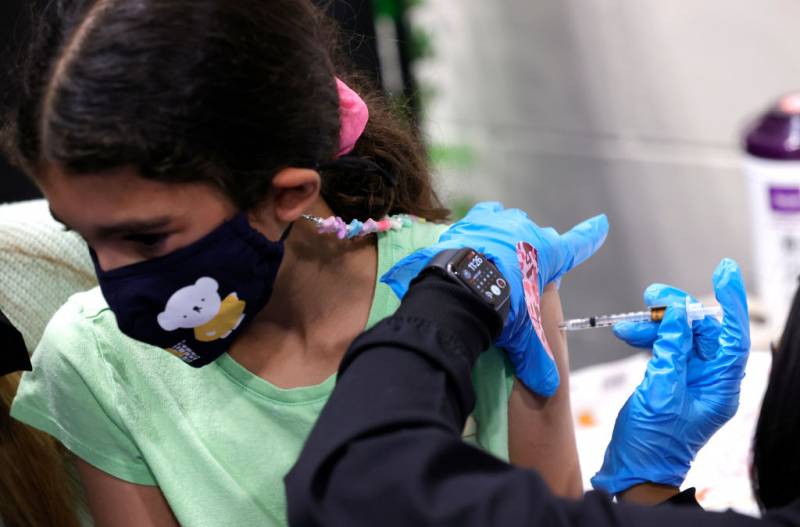Officials said the infected San Francisco resident is fully vaccinated — though has not yet received a booster — and has mild symptoms that are improving.
During a Wednesday news conference, San Francisco Public Health Director Dr. Grant Colfax said the city is well positioned to respond to new variants.
"Our vaccine rate is high. More boosters are going into arms every day," he said, noting that kids age 5 to 11 are now getting vaccinated at a rapid pace. "Our masking and vaccine requirements are among some of the most stringent in the country. These efforts have been very effective in helping slow the spread of the virus."
To find out more on the few knowns and many unknowns about the omicron variant, KQED's Brian Watt spoke on Wednesday morning to Dr. Julie Parsonnet, a Stanford University infectious disease expert and professor of medicine, epidemiology and population health.
The following interview has been edited for brevity and clarity.
Brian Watt: It's probably no surprise to you that the omicron variant has been detected here, right?
Dr. Julie Parsonnet: No, not at all. We [the Bay Area] are one of the most diverse populations in the world. We have a lot of travel and we have a lot of people who move around and come into the area. We have a very rich economy that permits that to happen. And we have actually excellent testing here. So if there were a variant that appeared, we would find it.
The person who was detected with this variant was fully vaccinated, not boosted, had mild symptoms and is already doing better. The people known as close contacts of this person have tested negative. What does this set of facts tell you about omicron?
We've known for quite a while that asymptomatic people and people who are generally immune can carry this virus. Even before omicron existed, we knew that there were going to be people vaccinated who carried this virus asymptomatically, vaccinated and unvaccinated. So it's not a surprise that we might find omicron in a vaccinated person.
I feel very reassured that it wasn't transmitted to their family, and I'm also very reassured that this person had mild symptoms. We're hearing rumors that perhaps this is not causing very severe symptoms, but we still have yet to really learn the spectrum of disease that this particular variant is going to cause.
We expect viruses to develop mutations, but just how long does this happen in the life span of a virus? Is there an endpoint to this process?
Yeah, absolutely. So, everything mutates. All animals, they have mutations in their systems when their cells replicate. When you have an organism that has DNA, which is the great majority of organisms, we have repair systems. So in a human, when our cells turn over, the DNA gets repaired if it has a mistake in it. So every time you replicate the DNA or you copy it, you can have a mutation. But there are enzymes that clean those up.

